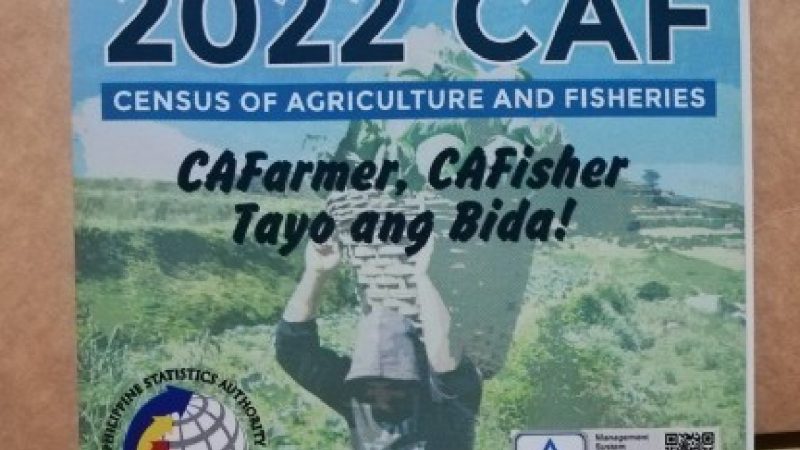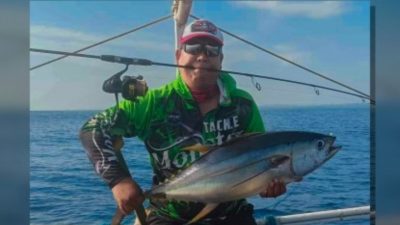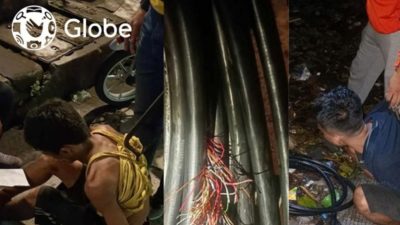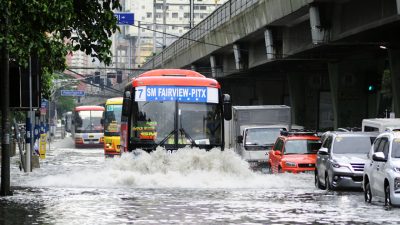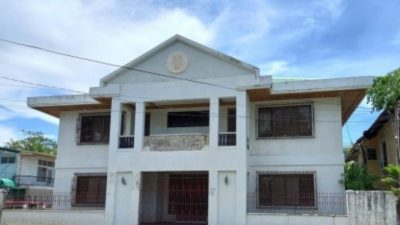BAGUIO CITY – Officials of the Philippine Statistics Authority (PSA) in the Cordillera Administrative Region (CAR) on Monday urged the public to cooperate and support the census of agriculture and fisheries that formally deployed enumerators on Monday.
“Today is the start of the enumeration, help us and cooperate in this undertaking,” said Villafe Alibuyog, regional director of the PSA-CAR during the media launch at a hotel here.
She said that data collection is a challenge not just because of the mountainous terrain and the distance of households in rural areas but also because there are people who refuse to provide the correct information or data.
A total of 577 individuals composed of enumerators, team supervisors and area supervisors have been deployed in the region for the census which will end on Oct. 25.
Alibuyog said they conducted a seven-day training for the 577 personnel to equip them with the skills of enticing the responders to provide correct and accurate information.
“We trained the enumerators to have a rapport with the responders so that they would be able to get the information by also assuring the public that the information they will give will be treated with confidentially and will not be used against them by other agencies,” said Aldrin Bahit, chief statistical specialist of PSA-CAR.
He said they also encounter data gathering challenges in highly urbanized areas like the difficulty of entering gated subdivisions and even condominium buildings, and people being out of their houses when PSA personnel arrive.
This is aside from the reality that farmers and fisherfolk do keep a regular record of their activities, making it difficult for them to recall information being asked for the census.
Bahit assured the public that the confidentiality of the information obtained by PSA is further enhanced by the “Data Privacy Act.”
Bahit said “Remote Sensing” and “Artificial Intelligence” mechanisms will also be used in gathering and confirming data for the success of the agriculture and fisheries census.
“These technologies will be used and focused on gathering data on the size of mango and coconut plantations, the surface area of fishponds, fish pens and fish cages,” Bahit said.
He said the weather also affects the outcome of their data gathering.
“If we take pictures, we see clouds covering the surroundings but we never give up and we continue to pursue measures to improve our data gathering system and give ease to enumerators,” Bahit said.
Proclamation 272 declared September 2023 as National Agriculture and Fisheries census month which happens every 10 years.
Agriculture is critical data, especially now that the government is giving utmost importance to agriculture and fisheries, he also said.
Warren Mamanteo, supervising senior statistician said: “The data gathered, for example, the number of cows being used in the fields, will be utilized by the government in coming up with plans, programs and support to the sectors. If the Department of Agriculture sees there is a need for more cows, then they might include the program of cow distribution for the farmers.” (PNA)

